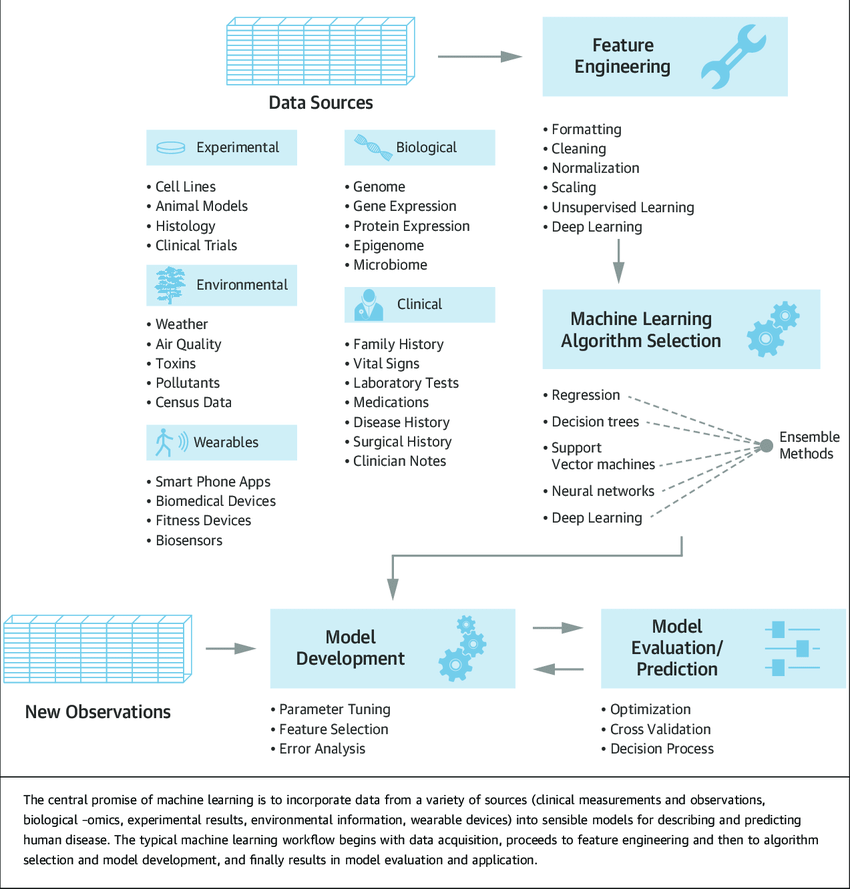Abstract: Traditional laboratory tests are essential for medical diagnosis. However, growing healthcare complexity demands more sophisticated data analysis. Machine learning (ML) offers a powerful tool to unlock the full potential of laboratory data, leading to more accurate diagnoses, personalized medicine, and improved patient outcomes. This article explores the integration of ML with established laboratory testing procedures, highlighting the benefits and challenges of this emerging field.
Combining Traditional and Machine-Driven Analysis:
Traditional laboratory tests provide quantitative or qualitative measurements of biological parameters. Interpreting these values in isolation can be difficult, especially for complex diseases. ML algorithms, trained on vast datasets of patient demographics, clinical history, and laboratory results, can identify subtle patterns and relationships that might be missed by humans. This collaboration between traditional testing and ML analysis offers significant advantages:
- Improved Diagnostic Accuracy: ML models can learn from historical data to identify subtle associations between specific lab values and diseases. This can lead to earlier and more precise diagnoses, especially for diseases with overlapping symptoms.
- Risk Stratification: ML algorithms can be used to identify patients at high risk for developing specific diseases based on their laboratory profiles. This allows for targeted preventive measures and earlier intervention.
- Personalized Medicine: By integrating genetic and other patient-specific data with laboratory results, ML can pave the way for personalized treatment plans tailored to individual patient needs.
Technical Considerations and Challenges:
While the potential of ML in laboratory medicine is significant, there are key challenges to address:
- Data Quality and Standardization: The success of ML algorithms depends on the quality and consistency of the data used for training. Standardization of laboratory testing procedures and data collection is crucial to ensure model generalizability.
- Model Interpretability: The complex nature of some ML models can make it difficult to understand how they arrive at their predictions. This lack of interpretability can hinder clinical adoption and raise concerns about bias.
- Regulatory Landscape: Integrating ML into clinical workflows necessitates robust regulatory frameworks to ensure the safety and efficacy of these tools.
Future Directions:
Despite these challenges, the integration of ML with laboratory testing is poised to revolutionize healthcare diagnostics. Future research directions include:
- Development of Explainable AI (XAI) techniques: These methods aim to make ML models more transparent, allowing healthcare professionals to understand the reasoning behind predictions.
- Exploration of federated learning: This distributed learning approach allows training ML models on geographically dispersed datasets while maintaining patient privacy.
- Continuous validation and clinical implementation: Rigorous validation of ML models in clinical trials is essential before widespread adoption.
Conclusion:
The integration of machine learning with traditional laboratory tests signifies a major shift in medical diagnosis. By leveraging the power of data analysis, this approach holds immense promise for improving diagnostic accuracy, optimizing patient care, and advancing personalized medicine. As research progresses and these challenges are addressed, ML has the potential to unlock the full potential of laboratory data, ushering in a new era of data-driven healthcare.
Explore Machine Learning & AI in Clinical Microbiology Labs: See the video


